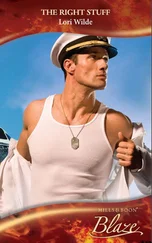Tom Wolfe - The Right Stuff
Здесь есть возможность читать онлайн «Tom Wolfe - The Right Stuff» весь текст электронной книги совершенно бесплатно (целиком полную версию без сокращений). В некоторых случаях можно слушать аудио, скачать через торрент в формате fb2 и присутствует краткое содержание. Жанр: Современная проза, на английском языке. Описание произведения, (предисловие) а так же отзывы посетителей доступны на портале библиотеки ЛибКат.
- Название:The Right Stuff
- Автор:
- Жанр:
- Год:неизвестен
- ISBN:нет данных
- Рейтинг книги:3 / 5. Голосов: 1
-
Избранное:Добавить в избранное
- Отзывы:
-
Ваша оценка:
- 60
- 1
- 2
- 3
- 4
- 5
The Right Stuff: краткое содержание, описание и аннотация
Предлагаем к чтению аннотацию, описание, краткое содержание или предисловие (зависит от того, что написал сам автор книги «The Right Stuff»). Если вы не нашли необходимую информацию о книге — напишите в комментариях, мы постараемся отыскать её.
The Right Stuff — читать онлайн бесплатно полную книгу (весь текст) целиком
Ниже представлен текст книги, разбитый по страницам. Система сохранения места последней прочитанной страницы, позволяет с удобством читать онлайн бесплатно книгу «The Right Stuff», без необходимости каждый раз заново искать на чём Вы остановились. Поставьте закладку, и сможете в любой момент перейти на страницу, на которой закончили чтение.
Интервал:
Закладка:
It took only seven minutes to reach the helicopter's mother ship, the aircraft carrier Lake Champlain . The capsule swayed back and forth below the helicopter. It was very sunny. It was a perfect day in May out near Bermuda. The helicopter began descending to the flight deck of the carrier. Shepard looked down and he could see hundreds of faces. They were all looking up toward the helicopter. The entire crew of the ship seemed to be on the deck. Their faces were all turned up toward him in the sunlight. Hundreds of faces turned up in the sun. They covered the whole aft section of the deck. They were massed in between the moored airplanes. They were all looking up toward the helicopter and moving, surging toward the spot where the helicopter would come down. He could make out a whole force of masters-at-arms down there trying to hold them back behind the ropes. As the helicopter came close to the deck, he could see the faces more clearly, and they had that look. Hundreds of faces already had that glistening look.
11 — The Unscrewable Pooch
Glenn and the others now watched from the sidelines as Al Shepard was hoisted out of their midst and installed as a national hero on the order of a Lindbergh. That was the way it looked. As soon as his technical debriefings had been completed, Shepard was flown straight from Grand Bahama Island to Washington. The next day the six also-rans joined him there. They stood by as President Kennedy gave Al the Distinguished Service Medal in a ceremony in the Rose Garden of the White House. Then they followed in his wake as Al sat up on the back of an open limousine waving to the crowds along Constitution Avenue. Tens of thousands of people had turned out to watch the motorcade, even though it had been arranged with barely twenty-four hours' notice. They were screaming to Al, reaching out, crying, awash with awe and gratitude. It took the motorcade half an hour to travel the one mile from the White House to the Capitol. Al sometimes seemed to have transistors in his solar plexus. But not now; now he seemed truly moved. They adored him. He was on… the Pope's balcony… Thirty minutes of it… The next day New York City gave Al a ticker-tape parade up Broadway. There was Al on the back ledge of the limousine, with all that paper snow and confetti coming down, just the way you used to see it in the Movietone News in the theaters. Al's hometown, Deny, New Hampshire, which was not much more than a village, gave Al a parade, and it drew the biggest crowd the state had ever seen. Army, Navy, Marine, Air Force, and National Guard troops from all over New England marched down Main Street, and acrobatic teams of jet fighters flew overhead. The politicians thought New Hampshire was entering Metro Heaven and came close to renaming Derry "Spacetown U.S.A." before they got hold of themselves. In the town of Deerfield, Illinois, a new school was named for Al, overnight, just like that. Then Al started getting tons of greeting cards in the mail, cards saying "Congratulations to Alan Shepard, Our First Man in Space!" That was already printed on the cards, along with NASA's address. All the buyers had to do was sign them and mail them. The card companies were cranking these things out. Al was that much of a hero.
Next to Gagarin's orbital flight, Shepard's little mortar lob to Bermuda, with its mere five minutes of weightlessness, was no great accomplishment. But that didn't matter. The flight had unfolded like a drama, the first drama of single combat in American history. Shepard had been the tiny underdog, sitting on top of an American rocket— and our rockets always blow up —challenging the omnipotent Soviet Integral. The fact that the entire thing had been televised, starting a good two hours before the lift-off, had generated the most feverish suspense. And then he had gone through with it. He let them light the fuse. He hadn't resigned . He hadn't even panicked. He handled himself perfectly. He was as great a daredevil as Lindbergh, and he was purer: he did it all for his country. Here was a man… with the right stuff. No one spoke the phrase—but every man could feel the rays from that righteous aura and that primal force, the power of physical courage and manly honor.
Even Shorty Powers became famous. "The voice of Mercury Control," he was called; that, and "the eighth astronaut." Powers was a lieutenant colonel in the Air Force, a onetime bomber pilot, and all during Shepard's flight he had come on the air from the flight control center at the Cape saying, "This is Mercury Control…" and reporting the astronaut's progress with a baritone coolness of the combat pilot's righteous sort, and people loved it. After the capsule splashed down, Powers had quoted, or seemed to have quoted, Shepard as saying everything was "A-Okay." In fact, this was a Shorty Powers paraphrase borrowed from NASA engineers who used to say it during radio transmission tests because the sharper sound of A cut through the static better than O . Nevertheless, "A-Okay" became shorthand for Shepard's triumph over the odds and for astronaut coolness under stress, and Shorty Powers was looked up to as the medium who communicated across the gulf between ordinary people and star voyagers with the right stuff.
Bob Gilruth's status rose sharply, too. After a solid year of flak and grief, Gilruth had finally earned the eminence of riding in one of the limousines in Shepard's triumphal motorcade through Washington. James E. Webb was sitting next to him, and they were looking out at the thousands of people who were smiling and crying and waving and cheering and taking pictures. "If it hadn't worked," said Webb, "they'd be asking for your head." As it was, Gilruth and Mercury and NASA were, all at once, names that stood for American technological competence. (Our boys no longer botch it and our rockets don't blow up.)
None of this was lost on the President. His opinion of NASA had now swung around 180 degrees. Webb was aware of that. Three weeks before, after Gagarin's flight, when Kennedy had summoned Webb and Dryden to the White House, the President had been in a funk. He was convinced that the entire world was judging the United States and his leadership in terms of the space race with the Soviets. He was muttering, "If somebody can just tell me how to catch up. Let's find somebody—anybody… There's nothing more important." He kept saying, "We've got to catch up." Catching up became an obsession. Finally, Dryden told him that it looked hopeless to try to catch up with the mighty Integral in anything that involved flights in earth orbit. The one possibility was to start a program to put a man on the moon within the next ten years. It would require a crash effort on the scale of the Manhattan Project of the Second World War and would cost anywhere from twenty to forty billion dollars. Kennedy found the figure appalling. Less than a week later, of course, the Bay of Pigs debacle had occurred, and now his "new frontier" looked more like a retreat on all fronts. Shepard's successful flight was the first hopeful note Kennedy had enjoyed since then. For the first time he had some confidence in NASA. And the tremendous public response to Shepard as the patriotic daredevil, challenging the Soviets in the heavens, gave Kennedy an inspiration.
One morning Kennedy asked Dryden, Webb, and Gilruth to come to the White House. They sat down in the Oval Office, and Kennedy said: "All over the world we're judged by how well we do in space. Therefore, we've got to be first. That's all there is to it." After this buildup Gilruth figured Kennedy was going to tell them to cut the Redstone suborbital flights short and move straight to the series of orbital flights using the Atlas rocket. They were still considering six and possibly ten more suborbital flights, like Shepard's, using the Redstone rocket. Gilruth had thought of moving straight to the orbital flights, although it was a daring proposition, given the problems they had been having on tests of the Mercury-Atlas system. So they were all absolutely startled when Kennedy said: "I want you to start on the moon program. I'm going to ask Congress for the money. I'm going to tell them you're going to put a man on the moon by 1970."
Читать дальшеИнтервал:
Закладка:
Похожие книги на «The Right Stuff»
Представляем Вашему вниманию похожие книги на «The Right Stuff» списком для выбора. Мы отобрали схожую по названию и смыслу литературу в надежде предоставить читателям больше вариантов отыскать новые, интересные, ещё непрочитанные произведения.
Обсуждение, отзывы о книге «The Right Stuff» и просто собственные мнения читателей. Оставьте ваши комментарии, напишите, что Вы думаете о произведении, его смысле или главных героях. Укажите что конкретно понравилось, а что нет, и почему Вы так считаете.











